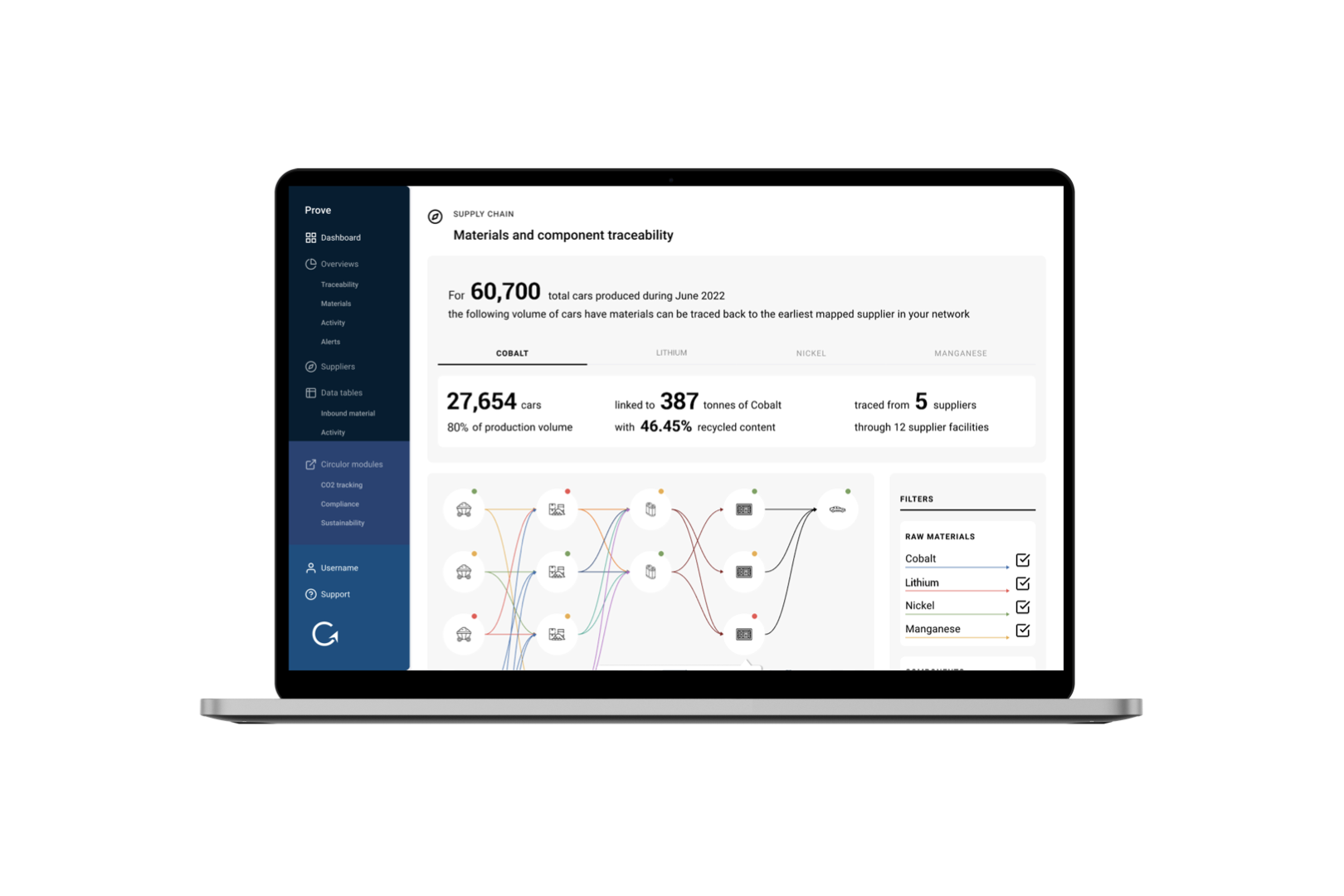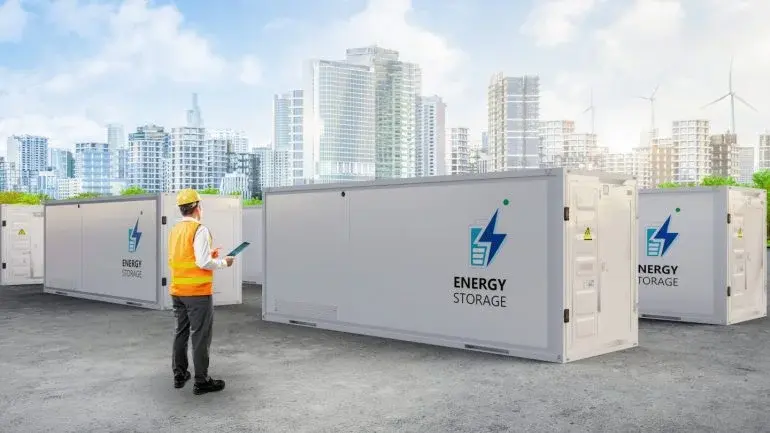
24.10.2024
Commentary
Navigating the EU Battery Regulation with PROVE by Circulor
Covering an array of battery categories including light means of transport (LMT), electric vehicle (EVs) and rechargeable industrial batteries, it sets specific requirements and deadlines depending on the type of battery and the participants’ role in the value chain. Ultimate responsibility for several significant obligations sits with Economic Operators – the importers, manufacturers, authorized representatives, service providers, or others involved in placing batteries on the European market.
Whilst compliance may seem daunting, it provides strategic opportunities for companies to unlock value across the battery ecosystem. However, the lead time to develop close collaboration and efficient data collection across the entire value chain, that proves meeting the minimum regulatory requirements when a battery enters the market is no small task.
The good news? Circulor has the solutions and is delivering them at scale. Already collaborating with 52% of global cell manufacturing capacity and over 150 customer facilities actively contributing traceability and sustainability data, we cover a substantial portion of battery value chain.
Increasingly stringent requirements
In Europe, EV sales — including both battery-electric and plug-in hybrid vehicles - are expected to reach 3.8 million vehicles in 2025 and 9.8 million in 2030, according to Rho Motion. To comply with the EU Battery Regulation, these EV batteries must meet specific sustainability and circularity requirements in four key areas; Due Diligence, Carbon Footprint, Battery Passport, and Recycled Content.
Other types of batteries, for example battery energy storage systems (BESS), have different compliance deadlines compared to EVs, with carbon footprint requirements coming into effect a year later. Despite this difference, BESS manufacturers must also act promptly to identify effective solutions and meet these regulatory requirements.
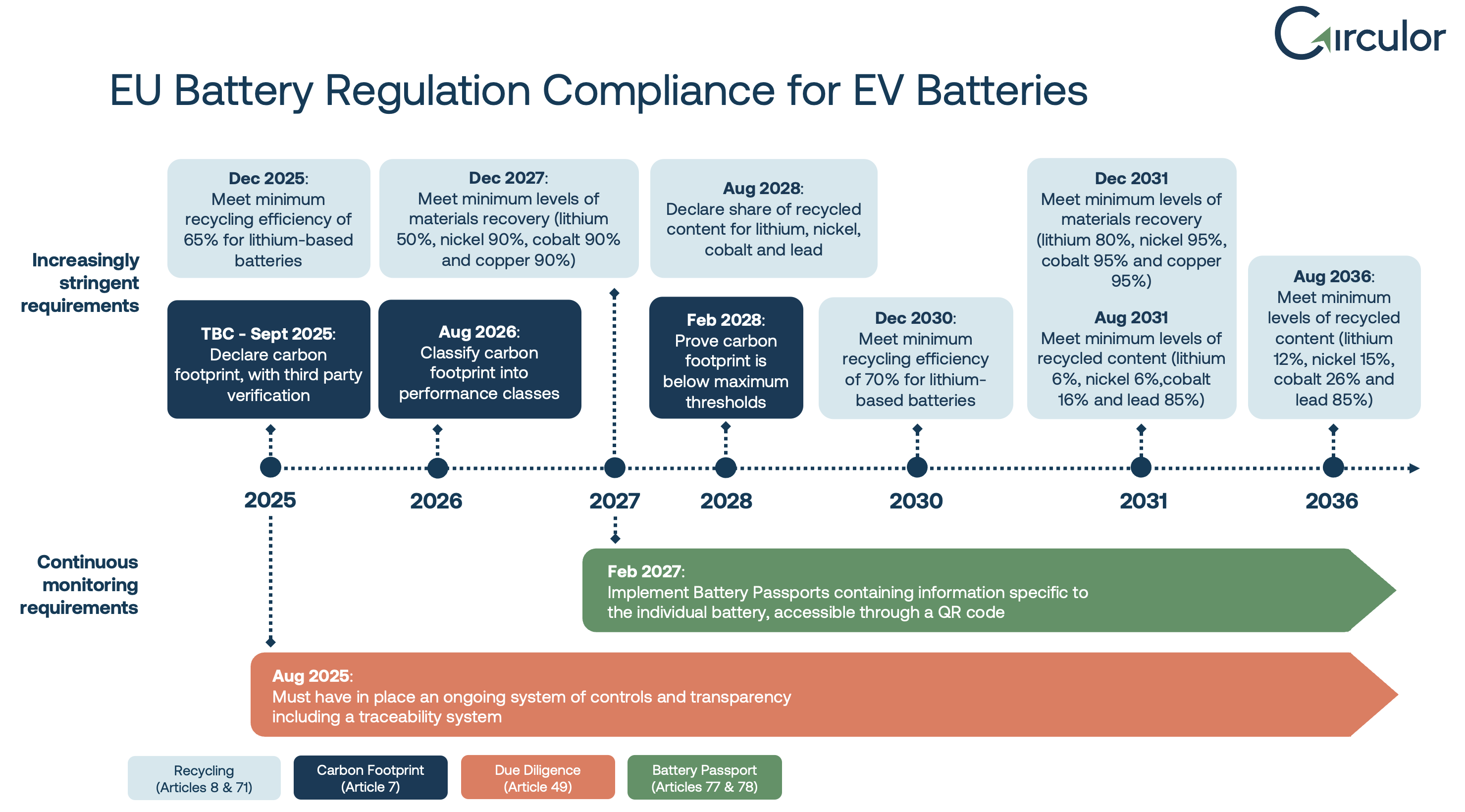
PROVE by Circulor: Paving the Way for Compliance
As manufacturers navigate their compliance challenges, Circulor’s PROVE platform becomes a crucial facilitator, ensuring regulatory adherence while providing the visibility needed to manage supply chain risks - all in one place, saving you both time and money.
Due Diligence (Articles 48 and 49):
The regulations state Economic Operators must establish and operate a system of controls and transparency including chain of custody or traceability system for their cobalt, natural graphite, lithium, nickel supply chains.
This system shall be supported by documentation that proves the provenance, material flows and quantities of these materials by August 2025.
PROVE’s Material Traceability is the market-leading technology built for this very challenge. When gathering data from upstream critical mineral producers and refiners, we verify material origin and track its journey through every production stage—from raw material to finished product. This enables a robust, digital chain of custody, while our use of blockchain technology creates immutable records that will satisfy regulators who are looking for verifiable and auditable proof.
PROVE can also attach any supporting documentation (industry standards, compliance documentation, and audit reports) upstream to the flow of materials which in turn assures its incorporation into specific battery cells and packs that are delivered downstream.
Carbon Footprint (Article 7):
Economic Operators face increasingly stringent requirements for carbon footprint transparency, starting with carbon footprint declarations per battery model and manufacturing plant by October 2025 (still TBC).
Declarations must be supported by a publicly available study which will subsequently be included in the battery passport from February 2027.
As the regulations mature, there is an increasing need to decarbonize. By August 2026, batteries must be classified into carbon performance classes, exposing those with higher footprints, and by February 2028 must demonstrate compliance with maximum threshold limits.
Circulor helps companies meet these challenges by providing accurate, primary data from across the supply chain and continuous monitoring to ensure that changes impacting the carbon footprint are accounted for, and adjustments—such as recalculating the carbon footprint baseline when emissions rise by 10%—are managed seamlessly.
As regulations mature, Circulor delivers the insights needed to decarbonize, helping companies meet future performance thresholds and maintain a competitive edge.
Battery Passport (Articles 77 and 78):
By February 2027, Economic Operators must issue a battery passport, accessible via QR code, for every battery they place on the market and ensure the information is accurate, complete and up to date. The battery passport must be linked to a unique identifier with different access rights for the different stakeholders and be fully interoperable with other digital product passports.
Circulor’s Battery Passport consolidates essential information on carbon emissions, responsible sourcing, supply chain due diligence, and recycled content ensuring regulatory compliance and enhancing supply chain transparency.
For example, in collaboration with Volvo Cars, Circulor launched the world’s first battery passport in June 2024 – providing unprecedented customer transparency via the electronic record of the raw materials, battery components and recycled content.
Not only is Circulor’s Battery Passport underpinned by primary end-to-end supply chain traceability data, our customers can also create templates that ensure all their battery information is organized by category and sub-category. Most importantly, they can version these templates each time they make any modifications to their battery product models. This ensures the library of passports they are required to maintain remains accurate and intact.
Furthermore, customers can set the differentiated access to battery data per stakeholder as well as store the battery passport to ensure its availability in the event of the Economic Operator ceasing its activity in the EU.
Circulor’s Battery Passport is Catena-X certified meaning suppliers can seamlessly connect through the Catena-X ecosystem and also connect concurrently via Circulor’s API.
Recycled Content (Article 8):
By August 2028, Economic Operators must declare the % share of recycled content of cobalt, lithium, nickel and lead recovered from battery manufacturing waste (except for lead) and/or post-consumer waste, for each battery model, per year and per facility.
Then by August 2031, Economic Operators must prove minimum recycled content of 16% cobalt, 85% lead, 6% lithium and 6% nickel, rising to 26% cobalt, 85% lead, 12% lithium and 15% nickel by August 2036.
Circulor’s Material Traceability solution provides credible insights and proof of the recycled content (%) of each material received into their facility and each product they produce. This is achieved by tracking recycled content into and along the supply chain, attributing it to the flow of materials. When materials are blended to produce an output product, Circulor captures the breakdown of metals within input and output products and apportions the recycled content accordingly to calculate the precise recycled content (%) to each output product.
If recycled content % values provided do not meet minimum recycled content requirements the platform alerts downstream customers so they can investigate further.
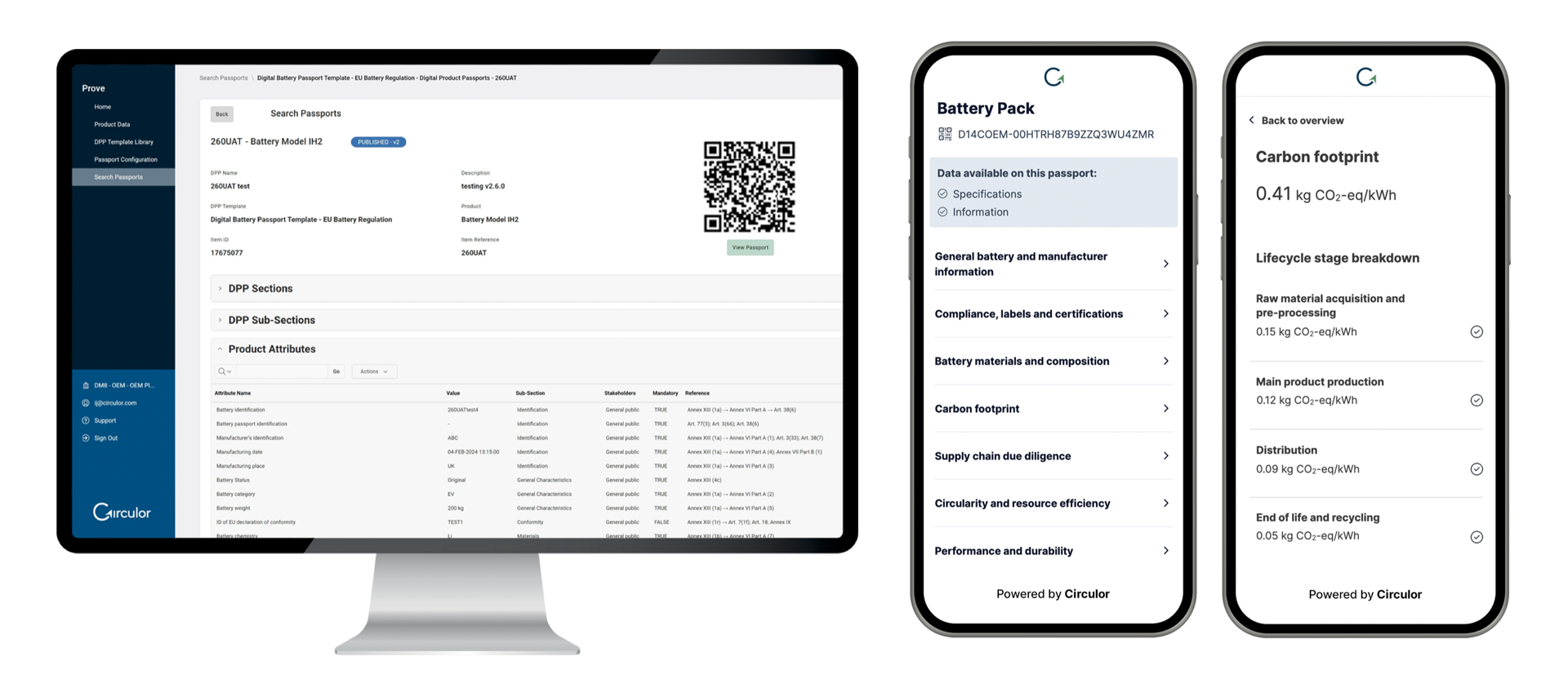
PROVE by Circulor – Battery Passport dashboard and customer mobile views
Using PROVE by Circulor helps organizations across the battery value chain start navigating the complexities of the battery regulation today.
Not only ensuring compliance within deadlines but also empowering companies to build a robust foundation of ESG data that will enable them to meet their sustainability and circularity ambitions and unlock strategic opportunities that generate value.

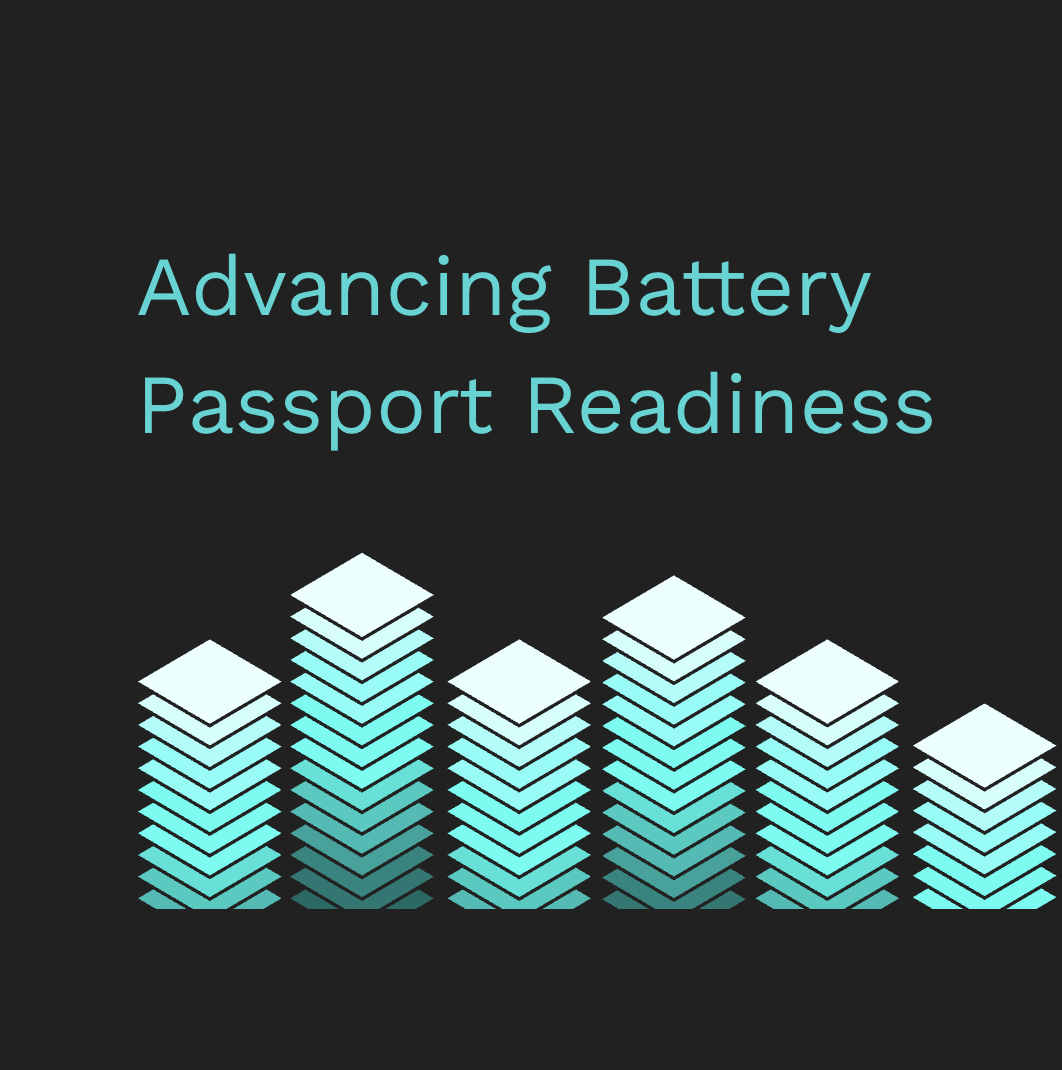




![Acculon RA Circulor - website image.001[44].png](/_next/image?url=https%3A%2F%2Fdecisive-wonder-fa24533282.media.strapiapp.com%2FAcculon_RA_Circulor_website_image_001_44_2720fb315d.png&w=1920&q=75)
